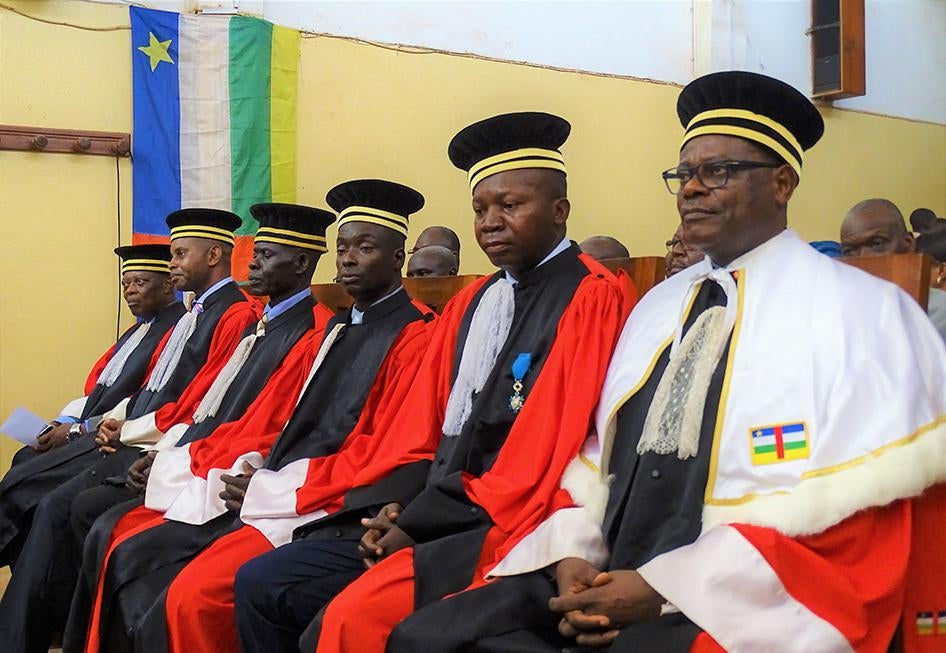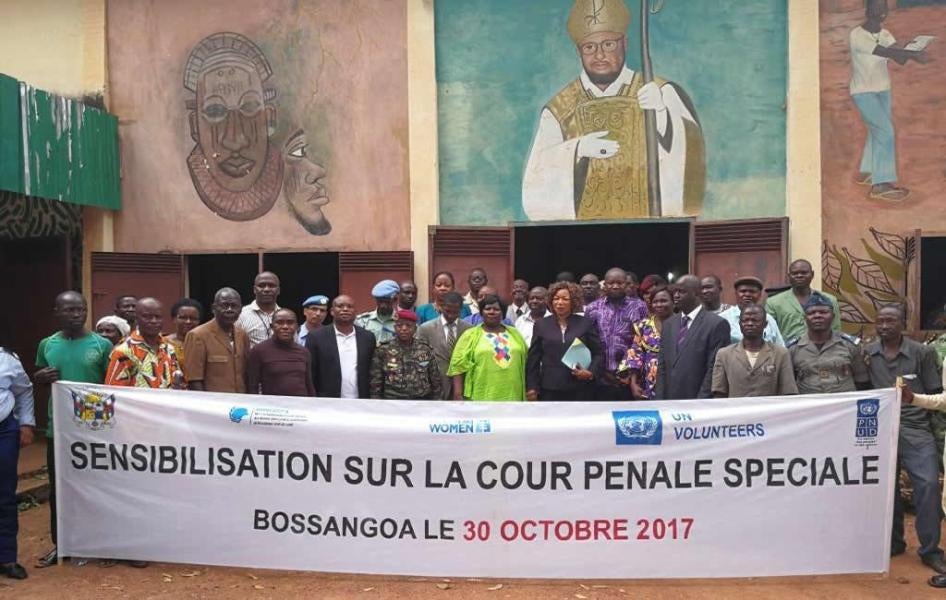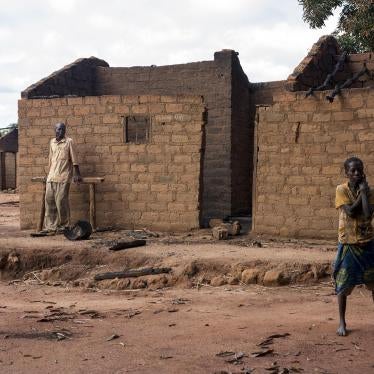(Nairobi) – Recent violence in the Central African Republic makes the country’s new Special Criminal Court especially important as a means to offer justice to victims of brutal crimes committed during the country’s conflicts, Human Rights Watch said today. A new report by Human Rights Watch finds that the court will need more support from the United Nations and government donors to prosecute grave crimes, including widespread killings, rape and sexual violence, and destruction of homes.
The 32-page report, “‘Looking for Justice’: The Special Criminal Court, a New Opportunity for Victims in the Central African Republic,” discusses the progress, obstacles, and challenges for the Special Criminal Court in its initial phases. Based on regular observation of the court and interviews with victim representatives, activists, court staff, UN representatives, donors, and government officials, Human Rights Watch offers observations on the current stage of the court’s development.
“There has been almost no justice for the most serious crimes committed in the Central African Republic in recent years, and this impunity fuels more abuses,” said Elise Keppler, associate international justice director at Human Rights Watch. “The Special Criminal Court is an unprecedented effort to help deliver justice for the gravest crimes, but international partners need to provide greater political and financial backing for it to succeed.”
Dozens of people have been killed in Bangui, the capital, in recent weeks, many of them civilians, as the violence threatens to ruin hard-fought gains toward stabilizing the city.
The Special Criminal Court offers a chance to deliver justice at a national level and could also serve as a model for other countries that are seeking to pursue justice for international crimes in their national systems.
Since 2017, the court has gained momentum with appointments of the special prosecutor, judges, investigators, and administrators. Rules to govern its operations have been drafted and the court has begun conducting outreach with the local population. But major challenges lie ahead. The court relies on voluntary contributions to operate, and the majority of funding for its five-year renewable mandate has yet to be secured.
Assuring security for court staff, and protection for victims and witnesses, will be difficult as violence persists across the country. There is no operational program of legal aid in the country for indigent defendants, and detention facilities are wholly inadequate. Central African investigators and administrators working at the Special Criminal Court lack experience with cases involving atrocity crimes, and the parliament still needs to adopt the rules for the court.
Over the course of research conducted since 2013, the desire to see those responsible for the violence held to account before courts of law has remained firm among victims, activists, and members of the legal community. Bruno, who works with a victims’ association and is himself a victim, told Human Rights Watch in late 2017, “People who should already be listed as criminals continue to commit crimes. Victims are looking for justice. They want to see the perpetrators and their accomplices held to account.” His name has been changed for his protection.
The Special Criminal Court, established by law in 2015, is integrated into the Central African Republic’s domestic judicial system, but staffed by both international and Central African judges, prosecutors, and administrators. The court has jurisdiction over serious crimes committed since 2003 and will operate alongside the International Criminal Court (ICC), which has two investigations into crimes committed in the country. The ICC is expected to prosecute only a small number of cases given its limited resources and mandate.
Victims have an important role at the Special Criminal Court. In addition to serving as potential witnesses, victims can join the criminal proceedings as civil parties (partie civile). A feature of civil law systems, civil parties serve as a formal party to the proceedings, alongside the prosecutor and the defendant. Civil parties generally may take measures such as making submissions to the case file, requesting an investigation or steps to advance an investigation, and examining witnesses.
“The Special Criminal Court has made important progress since 2017, and demand for this court is high in the Central African Republic,” Keppler said. “Justice for the gravest crimes is not a panacea, but credible trials can build respect for the rule of law and signal that those responsible for grave crimes can be held to account, marking a new chapter for the country.”











